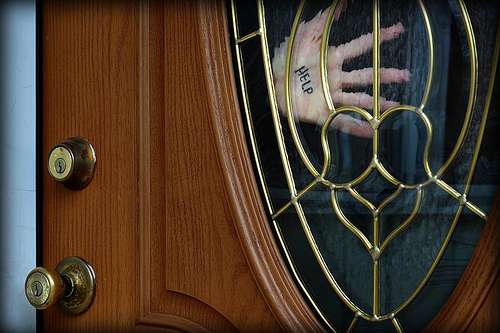Violent words, not just deeds, leave a lasting mark on our kids

She showed me the cigarette burns on her arms. Her eyes seemed empty as she slumped in the chair, answering questions with defeated shrugs. Finally she explained that her stepfather had held her down and burnt her arm many times with his cigarette, calling her a "useless bitch" because she had accidentally spilled his beer.
She was 12 years old.
Further questioning revealed that this child had been subjected to regular verbal abuse, including threats of physical violence, public humiliation and degradation for "bad behaviour" for the past two years. However, it was only when the physical assault occurred that her mother took action.
When we talk about family violence, many people still assume that we're only talking about physical assaults. But violence comes in many forms, as a UNICEF report on children's experience of violence around the world reaffirmed only last week.
Family violence includes physical, sexual, mental, neglect or negligent forms of assaults. There is often a blurring of the boundaries between these forms of violence and frequently a lack of recognition of the violence itself and its impacts.
Not on our watch
In the past week, two new campaigns here in Australia and overseas have highlighted not only the challenges we face in tackling family violence, but also some of the solutions – including the role each of us can play.
On Friday last week, National Ambassador for Women and Girls and former Democrats senator Natasha Stott Despoja launched Our Watch, a new campaign aimed at addressing the deadly impact of domestic violence in Australia.
One women is killed almost weekly by a current or former partner in Australia, and intimate partner violence is the leading cause of illness and disability in Australian women aged 15-44.
The Our Watch launch coincided with the release last week of a new UNICEF report, aptly titled Hidden in Plain Sight, which details global violence against children and, using well-validated sources of data collection, found that:
- Almost 1 in 5 of all homicide victims in 2012 worldwide were children, claiming the lives of about 95,000 children and adolescents under the age of 20.
- Around 6 in 10 children between the ages of 2 and 14 worldwide(almost a billion children) are subjected to physical punishment by theircaregivers on a regular basis.
- About 3 in 10 adults worldwide believe that physical punishmentis necessary to properly raise or educate children.
- About 1 in 3 adolescents aged 11 to 15 in Europe and NorthAmerica admit to having bullied others at school at least oncein the past couple of months.
- Close to half of all girls aged 15 to 19 worldwide (around126 million) think a husband is sometimes justified in hitting or beating his wife.
Some of the UNICEF report's most worrying findings are about children's own perceptions of what violence is acceptable. This is also true here in Australia: the violence that children see and experience, whether it is physical, sexual or emotional/verbal, will shape the kinds of adults, partners and parents they become.
So what can we do to end the cycle of violence and stop children from being too badly harmed by their early exposure to family violence?
Out of the shadows
Globally, there is much to be done, and UNICEF has outlined its six strategies for action in its #ENDViolence campaign.
Here in Australia, there is much we can do too.
First and foremost are educational activities that open up discussions about family violence. The early recognition of family violence by victims, carers and perpetrators, as well as health and education professionals, is a key to protecting our children.
Taking family violence out of the shameful shadows and validating the experience of the victims are important steps forward. Changing attitudes and challenging "normal" concepts that are actually harmful, are vital for the safety and welfare of our children.
Providing resources to deal with the many related issues of child and family violence need a whole of society and whole of government approach.
Supporting parents, educating parents and, if needed, treating the perpetrators of violence are all important parts of improving child protection.
Enforcing the existing child protection laws require good resourcing and need to continue to be a priority in our society.
Finally we need to also remember that children in special care situations and institutions are highly vulnerable and need protection from abuse of all types.
It is in our hands to protect our children from harm and our society needs to be based solidly on the premise that, to quote the United Nations Convention on the Rights of the Child: "All forms of violence against children, however light, are unacceptable."
This story is published courtesy of The Conversation (under Creative Commons-Attribution/No derivatives).
![]()
















